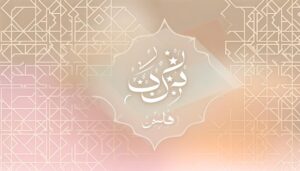Maryam Name Meaning in Islam
In Islam, the name Maryam carries deep spiritual significance, symbolizing purity, devotion, and unwavering faith. Derived from Hebrew and Egyptian origins, it translates to 'beloved' or 'bitter.' Maryam, the mother of Jesus, is uniquely exalted in the Quran, the only woman mentioned by name.
She is celebrated for her divine favor and miraculous birth. Maryam serves as a revered model of piety and spiritual strength, embodying the sacred feminine.
Her legacy is influential across Islamic, Christian, and Jewish traditions. If you continue, you will uncover her profound impact on culture and modern usage.

Key Takeaways
- Maryam means 'beloved' or 'bitter' and is derived from Hebrew and Egyptian origins.
- In Islam, Maryam is highly revered for her purity and devotion.
- She is the only woman named explicitly in the Quran, indicating her exceptional status.
- Surah Maryam in the Quran details her miraculous birth and spiritual dedication.
- Maryam symbolizes spiritual strength, piety, and the sacred feminine in Islamic tradition.
Etymology of Maryam
The name Maryam, deeply rooted in Semitic languages, traces its origins to ancient Hebrew and Egyptian cultures. In Hebrew, it is derived from 'Miryam,' a name associated with meanings such as 'beloved' or 'bitter,' reflecting both endearment and resilience.
Egyptian linguistics propose a connection to 'mry,' meaning 'beloved,' attesting to its long-standing cultural reverence. This etymological richness contributes to the name's multifaceted significance across various traditions.
In Islam, Maryam holds profound respect and spiritual importance, often seen as a symbol of purity and devotion. Understanding the etymology of Maryam not only unravels its linguistic beauty but also provides insight into its revered status in Islamic tradition and other religious and cultural contexts.
Historical Context
Tracing the historical context of the name Maryam reveals its profound significance across various civilizations and epochs. The name Maryam, known in English as Mary, holds venerable status in both Jewish and Christian traditions.
In Jewish history, Maryam is associated with Miriam, the sister of Moses and Aaron, who played a pivotal role during the Exodus.
In Christianity, Mary, the mother of Jesus, is revered as a symbol of purity and devotion. The name has traversed centuries, maintaining its revered status in religious and cultural narratives.
Its timeless nature underscores a rich tapestry of heritage and identity, reflecting deep spiritual and historical connections that have resonated through generations and continue to hold a place of honor in contemporary times.
Maryam in the Quran
In the Quran, Maryam is exalted as one of the most esteemed women, celebrated for her unwavering faith and piety. She is the only woman mentioned by name in the Quran, highlighting her exceptional status.
Surah Maryam (Chapter 19) is specifically named after her, detailing her miraculous birth, her devotion to God, and the immaculate conception of her son, Prophet Isa (Jesus). Maryam's story is a demonstration of her spiritual purity and obedience, serving as an exemplar of faith.
Additionally, Surah Al-Imran (Chapter 3) recounts her lineage, emphasizing her chosen status and the divine favor bestowed upon her family. Through these verses, Maryam's legacy is profoundly enshrined in Islamic scripture.
Spiritual Significance
The name Maryam holds profound spiritual significance in Islam, symbolizing a deep divine connection and embodying the sacred feminine. Revered as the mother of Prophet Isa (Jesus) in Islamic tradition, Maryam represents purity, devotion, and unwavering faith. In addition to its spiritual meaning, the name Maryam has also been associated with strength and resilience. Many parents choose this name for their daughters in the hopes that they will uphold these virtues throughout their lives. If you’re interested in learning more about the spiritual significance of names, you may want to explore the zoey name meaning and its origins.
Her story and attributes offer a powerful model of spiritual strength and piety for believers.
Divine Connection Symbolism
Maryam, deeply revered in Islamic tradition, symbolizes a profound spiritual connection to the divine. Her story is not just one of miraculous birth; it embodies unwavering faith and divine favor.
In the Qur'an, Maryam is depicted as a paragon of piety and virtue, chosen above all women to bear the Prophet Isa (Jesus). Her life exemplifies submission to God's will, reflecting a deep, almost transcendent relationship with the Creator. This divine connection is underscored by her role as a conduit for divine messages and miracles.
Her narrative encourages believers to foster their own spiritual connections, emphasizing the importance of faith, purity, and trust in God's plan. Through Maryam, Muslims find inspiration for their own spiritual journeys.
Sacred Feminine Representation
Beyond her divine connection, Maryam also embodies the sacred feminine, representing profound spiritual significance within Islam. She is revered not only as the mother of Prophet Isa (Jesus) but also as a paragon of purity, devotion, and strength.
Her story, chronicled in the Quran, serves as a powerful reflection of unwavering faith and resilience in the face of immense trials. Maryam's virtuous character and her pivotal role in Islamic narratives highlight the esteemed position of women in spiritual contexts. Her example encourages Muslims to honor the feminine aspects of spirituality, emphasizing compassion, patience, and inner strength.
Through Maryam, the sacred feminine is celebrated, underscoring the integral role of women in the spiritual and moral fabric of Islam.
Cultural Impact
Revered across various cultures and communities, the name Maryam carries profound historical and spiritual significance in Islamic tradition. This name, reflecting purity and devotion, has had a lasting cultural impact, transcending geographical and social boundaries.
Maryam, mother of Prophet Isa (Jesus), is venerated not only within the Islamic faith but also in Christian and Jewish traditions, highlighting her universal appeal. The reverence for Maryam in Islamic texts and teachings has permeated cultural practices, influencing art, literature, and even social values.
Her story inspires themes of resilience and piety, serving as a moral exemplar for women across generations. Consequently, the name Maryam is frequently chosen, perpetuating its rich legacy and cultural resonance.
Modern Usage
In contemporary times, the name Maryam continues to be widely embraced, symbolizing a blend of traditional values and modern identity. This enduring popularity spans various cultures and regions, reflecting its deep religious and historical significance.
In Muslim-majority countries, Maryam remains a preferred choice, honoring the virtuous and revered figure of Mary in Islamic tradition. Simultaneously, its usage in Western societies highlights a multicultural embrace, fostering inclusivity and diversity.
Parents often choose Maryam for its timeless elegance, spiritual resonance, and phonetic appeal. The name's adaptability across different languages and dialects further enhances its global appeal, making it a meaningful and versatile option in today's interconnected world.
Therefore, Maryam's modern usage underscores its enduring relevance and universal charm.
Conclusion
Much like a timeless tapestry interwoven with threads of history, faith, and culture, the name Maryam holds profound significance in Islam. Revered in the Quran and cherished across generations, it embodies spiritual purity and resilience.
The story of Maryam, who faced trials with unwavering faith, serves as an enduring beacon of strength and devotion. In this way, the name continues to inspire and resonate deeply within the Muslim community, symbolizing a legacy of piety and perseverance.






